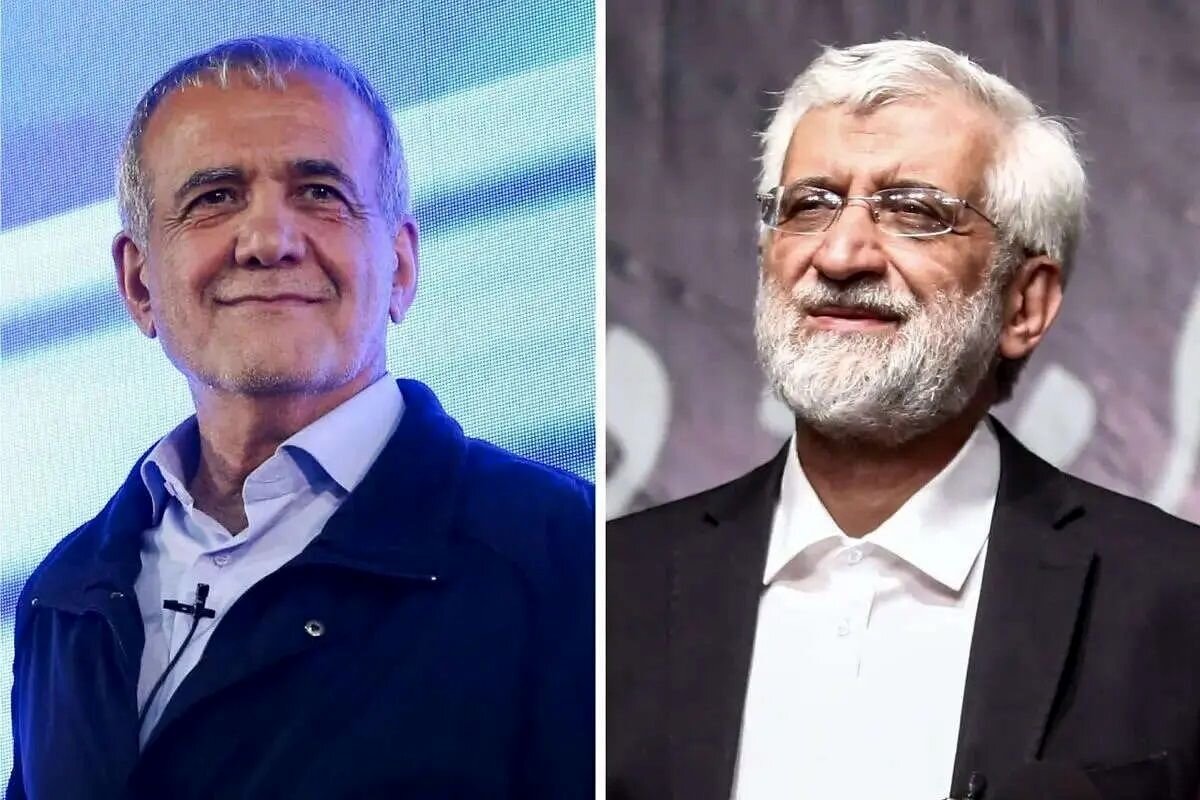Campaign rhetoric heats up ahead of Iran’s presidential runoff

TEHRAN - With a significant portion of Iranian voters remaining undecided ahead of the July 5th presidential runoff, supporters of the two candidates have escalated their campaigns, highlighting their rival's perceived weaknesses to rally support.
Gas price hike focal point of attack against Pezeshkian
Supporters of conservative candidate Saeed Jalili have been highlighting previous comments made by reformist Masoud Pezeshkian, in which he expressed support for increasing gas prices. He said he thinks gas prices should increase at least fivefold, though he later denied being in favour of such move.
Iran's gas prices, currently ranging from 2 to 5 cents per liter, are heavily subsidised and among the lowest in the world, even cheaper than bottled water.
Before November 14, 2019, gas prices were even lower. However, when the government announced a threefold increase in gas costs, it led to a brief period of violent protests and riots.
Since then, subsequent administrations have been hesitant to raise gas prices. Nonetheless, some economists argue that Iran's energy prices need to be increased, regardless of who becomes president.
Experts believe that Iran's current practice of selling gasoline at a significantly lower price than its production cost has led to wastage of natural resources and rampant smuggling of fuel out of the country. They say the situation not only depletes Iran's wealth but also undermines its self-sufficiency in gasoline production.
However, such a move must be accompanied by targeted measures to mitigate the impact on vulnerable segments of society, ensuring that those with lower incomes are not disproportionately burdened by the price adjustment, economists say.
Reformists draw on foreign policy and cultural matters to attack Jalili
Pezeshkian's campaign is focusing on two key areas to attack his conservative rival: foreign policy and cultural issues.
Reformists have long painted conservatives as isolationist and averse to diplomacy, but recent events have complicated this narrative. The JCPOA, once a cornerstone of reformist pride, is now in a precarious state, while significant international achievements like membership in BRICS and the Shanghai Cooperation Agreement were secured under the administration of the late President Ebrahim Raisi, a figure closely aligned with conservative factions.
Further complicating matters for Pezeshkian, resurfaced audio recordings from Ali Tayebnia, a current member of his election office and former finance minister under President Hassan Rouhani, cast a shadow on the reformists' foreign policy record. Tayebnia, in a recorded lecture, disparaged former foreign minister Mohammad Javad Zarif, who is closely associated with Pezeshkian and is seen as a potential foreign minister in a Pezeshkian administration, calling him "one of the worst foreign ministers in Iran's history."
While the reformists' critique of Jalili's foreign policy seems to be losing steam, their accusations regarding cultural issues appear to have more traction. Pezeshkian's backers have highlighted recent statements from members of Jalili's campaign team, who have sparked controversy with their shockingly aggressive comments on cultural issues in recent days.
Despite Jalili's consistent stance against heavy-handed cultural intervention, his associates appear to be undoing his efforts. Analysts have advised Jalili to choose his TV representatives more carefully, if he doesn’t want his rival to use their hasty and unwise positions against him.
It remains to be seen whether either of the candidate’s supporters would be able to successfully dissuade undecided voters from considering their opponent.
culled from Tehran Times

